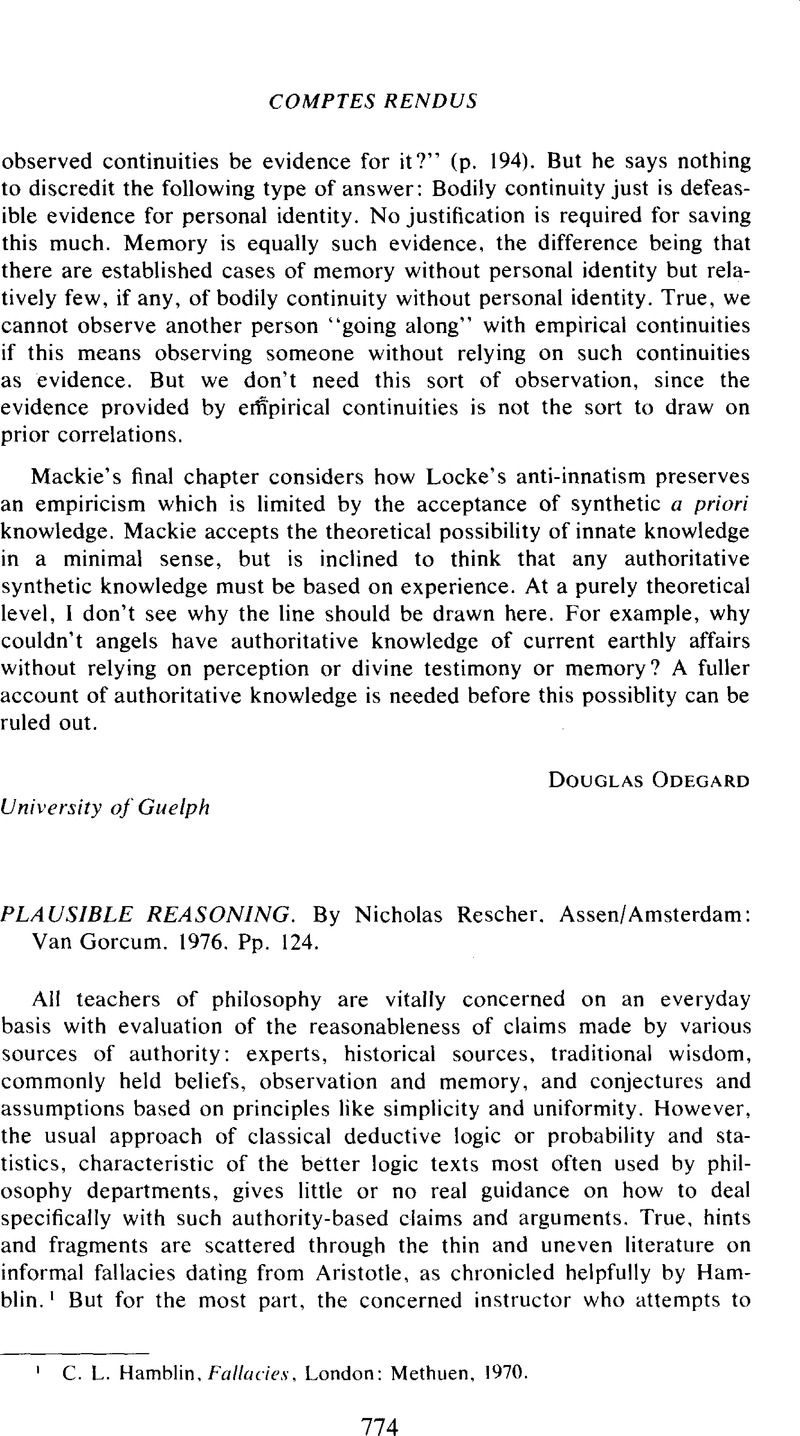No CrossRef data available.
Published online by Cambridge University Press: 05 May 2010

1 Hamblin, C. L., Fallacies, London: Methuen, 1970.Google Scholar
2 See the review of Hamblin's Fallacies by Englebretsen, George, Dialogue, 12, 1973. pp. 151–54.CrossRefGoogle Scholar
3 Morgan, Augustus De, Formal Logic, London: Taylor and Walton, 1847, pp. 281–85.Google Scholar
4 See also the discussion in Woods, John and Walton, Douglas, ‘Ad Verecundiam’, Philosophy and Rhetoric, 7, 1974, pp. 135–53.Google Scholar
5 In this he diverges from Polya, and other writers on plausibility.
6 See Woods and Walton, ‘Ad Verecundiam,’ for an analysis of the structure of appeals to expertise that takes factors of “the domain of expertise” into account.
7 An index would have helped.
8 Whately, Richard, Elements of Logic, New York: William Jackson, 1836Google Scholar. See also Richard Whately, Elements of Rhetoric, 1828, photo-offset reprint edited by Douglas Ehninger. Carbondale: Southern Illinois University Press, 1963.